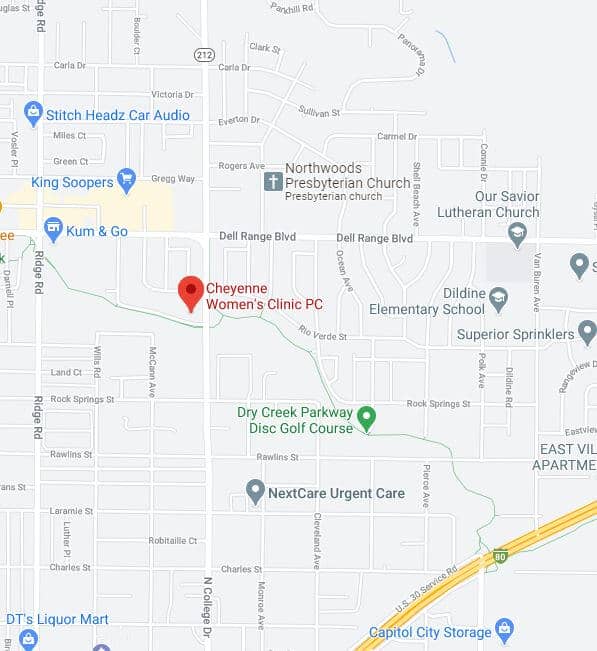Polycystic Ovary Syndrome (PCOS) is a hormonal disorder common among women of reproductive age. If you have it, the symptoms may appear around the time of puberty. But you may also develop PCOS as part of your body’s response to gaining a large amount of weight.
There are several signs and symptoms related to PCOS and the conditions that cause it. However, there are four that may signal you have the disorder:
- Infertility – You are trying to get pregnant and you can’t. PCOS is one of the most common causes of female infertility.
- Irregular menstrual periods – Your periods might stop, occur more frequently than every 28 days (or less frequently), be very heavy, or be completely unpredictable from one month to the next.
- Excess hair growth – You may have unwanted hair on your face, chest, abdomen, or upper thighs. This condition is called hirsutism, and it affects more than 70% of women with PCOS.
- Severe acne – You develop the skin of a teenager that doesn’t respond to traditional acne treatments.
You may also notice you have oily skin and patches of thick, velvety, dark skin called acanthosis nigricans on your body. The underarms and groin are common places for these skin changes to appear.
And you may also have a condition called polycystic ovaries. Your ovaries become somewhat enlarged and develop many small sacs of fluid called follicles around the edges. Your ovaries might not release eggs regularly, making it difficult to become pregnant.
All of these symptoms may be more severe if you are overweight. Obesity seems to be connected to PCOS and can make its complications worse.
What is Causing All This?
The cause of PCOS is unknown, but it appears to result from a number of different factors working together in your body:
- Insulin resistance – If your body’s cells don’t respond correctly to the amount of insulin produced by your pancreas by absorbing glucose (sugar), the level of glucose in your blood rises. This may cause your pancreas to produce even more insulin, which results in too much insulin in your body. This can lead to diabetes, and it is also associated with the dark skin patches (acanthosis nigricans) mentioned above.
- Increased levels of hormones called androgens – When your body produces higher than normal levels of androgens, the ovaries may not do their job releasing an egg each month, leading to infertility. High androgen levels also cause the abnormal hair growth and acne that many women with PCOS experience.
- Irregular periods – Irregular menstrual periods are often related to or caused by absent or irregular ovulation, which can lead to infertility and also the development of polycystic ovaries.
Other Health Risks Related to PCOS
Insulin resistance can cause health risks on its own. Combined with the other effects of PCOS on your body, you become more susceptible to:
- Type 2 diabetes or prediabetes
- Metabolic syndrome (includes high blood pressure, high blood sugar, and abnormal cholesterol or triglyceride levels that can increase your risk of cardiovascular disease)
- Abnormal uterine bleeding
- Cancer of the uterine lining (endometrial cancer)
If you are able to become pregnant, unmanaged PCOS can leave you at risk for gestational diabetes or pregnancy-induced high blood pressure and miscarriage or premature birth.
Treating PCOS
There are a number of different treatments available to address the symptoms of PCOS. If you want to address specific concerns related to PCOS, such as infertility, unwanted hair growth, or acne, talk to your provider. Different treatments address different symptoms, but they may include:
- Combined hormonal birth control pills – The estrogen and progestin in these pills regulate your cycle and decrease androgen levels to reduce unwanted hair growth and acne. They can also decrease your risk of endometrial cancer.
- Weight loss – Controlling your weight can help to regulate your menstrual cycle and make your periods more regular. Losing weight may also help you control your insulin and cholesterol levels and relieve the symptoms of unwanted hair growth and acne.
- Insulin-sensitizing drugs – Drugs used to treat diabetes may also be successful in relieving PCOS symptoms. If your body responds better to insulin, that may reduce your androgen levels and improve ovulation. Restoring your ovulation will help to make your periods regular and more predictable.
If you have symptoms of PCOS, especially if you’re trying to become pregnant, make an appointment with your provider by calling 307.637.7700. There is no specific test for PCOS, but there are several tests that can help him or her make a diagnosis and help you find relief.







